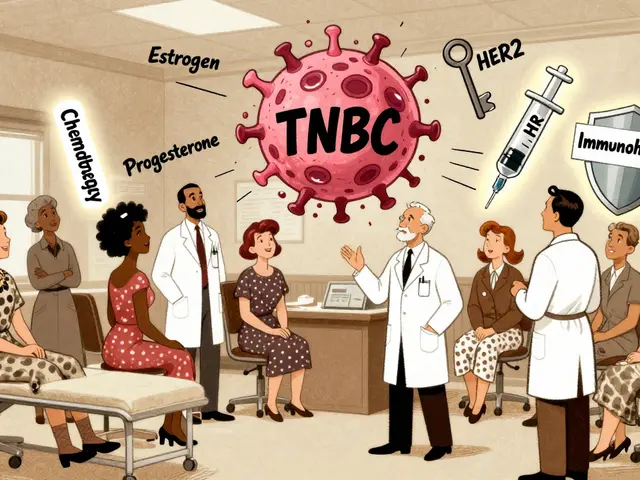CYP2C19: What It Is and Why It Matters for Your Meds
If you’ve ever heard your pharmacist mention CYP2C19, you probably wondered what the fuss is about. In plain terms, CYP2C19 is a liver enzyme that helps break down a handful of common drugs. When it works well, your medication is cleared at the right speed. When it’s too fast or too slow, you might get less benefit or more side‑effects.
Genetic differences are the biggest reason the enzyme varies from person to person. Some folks are “rapid metabolizers” – the enzyme clears the drug quickly, which can lower the drug’s effect. Others are “poor metabolizers” – the drug hangs around longer, raising the risk of toxicity. A simple genetic test can tell you where you land on that spectrum.
Why CYP2C19 Matters for Everyday Medications
Even though the enzyme handles a relatively short list of drugs, those drugs are widely used. Clopidogrel, a blood‑thinner that prevents heart attacks, needs CYP2C19 to become active. If you’re a poor metabolizer, clopidogrel might not stop clots as well as it should. Many doctors now check CYP2C19 status before prescribing it and may switch to alternatives like prasugrel.
Proton‑pump inhibitors (PPIs) such as omeprazole and pantoprazole also rely on CYP2C19. Rapid metabolizers may find these drugs less effective at controlling stomach acid, while poor metabolizers could experience higher drug levels and more headache or nausea. If you’re taking a PPI with clopidogrel, your doctor might choose a PPI that’s less dependent on CYP2C19, such as esomeprazole.
Common Drugs Affected and Practical Tips
Here’s a quick list of meds you’ll often see tied to CYP2C19:
- Clopidogrel (blood‑thinner)
- Omeprazole, Lansoprazole, Pantoprazole (acid reducers)
- Diazepam (anxiety medication)
- Escitalopram (antidepressant)
- Voriconazole (antifungal)
What can you do?
- Ask your doctor if a CYP2C19 test makes sense before starting any of these drugs.
- If you’re already on a medication, let your clinician know if you’ve had side‑effects or feel the drug isn’t working.
- Never swap a prescription drug for an over‑the‑counter alternative without checking how it’s metabolized.
- Keep a list of all your meds – the enzyme can affect more than one drug at a time, leading to hidden interactions.
For example, a patient on clopidogrel and omeprazole may be advised to switch the PPI or adjust the clopidogrel dose. This kind of “enzyme‑aware” tweaking can keep the heart‑protecting benefits while minimizing stomach upset.
Bottom line: CYP2C19 isn’t something you need to study for a PhD, but understanding its role can prevent a lot of trial‑and‑error with meds. Talk to your healthcare team, consider a quick genetic test if it’s on the table, and stay aware of which drugs rely on this enzyme. That way you get the right dose, the right effect, and avoid nasty surprises.

Obesity and Clopidogrel Effectiveness: What Changes, What the Evidence Shows, and What To Do
- By : Tamsin Riverton
- Date : Sep 1 2025
Does obesity blunt clopidogrel? Clear, evidence-backed guide on mechanisms, outcomes, testing, and smarter antiplatelet choices in 2025.




